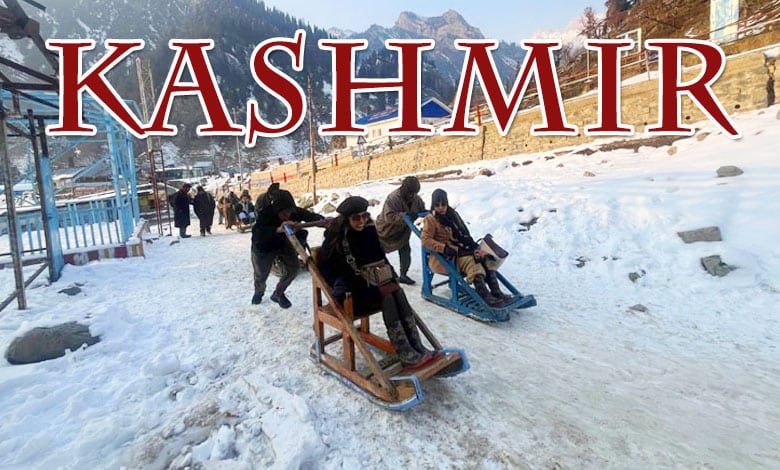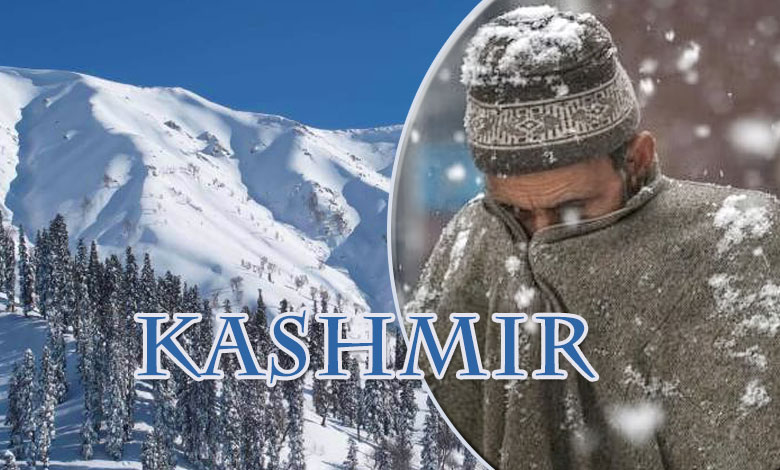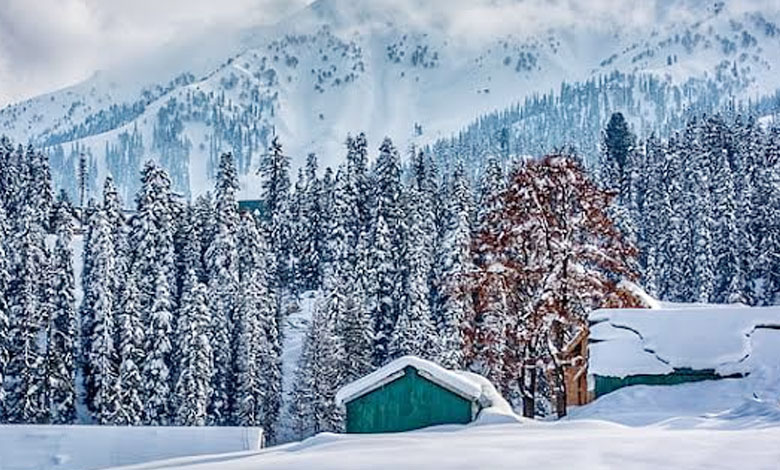Kashmir Endures Intense Cold Wave with Freezing Temperatures; Light Snowfall Expected
"Kashmir faces intense cold wave conditions with freezing temperatures and icy water bodies. Light snowfall is expected in higher reaches due to an approaching Western Disturbance."

Srinagar: Kashmir is currently experiencing an intense cold wave, with temperatures plummeting well below the freezing point across the region.
As of Thursday, the valley remains under harsh winter conditions, with widespread freezing temperatures, particularly at night.
Table of Contents
The minimum temperatures have been recorded several degrees below zero, resulting in the freezing of water supply lines and a thin layer of ice forming over lakes and water bodies, including the famous Dal Lake.
Cold Wave Conditions in Key Areas
Srinagar, the summer capital of Jammu and Kashmir, recorded a low of -7°C on Wednesday night, slightly warmer than the previous night’s low of -7.3°C. The town has been grappling with freezing conditions, which have caused disruptions in daily life.
Other areas, including Gulmarg, Pahalgam, Qazigund, and Kupwara, have also recorded sub-zero temperatures, with the coldest place being Konibal in Pampore at -9°C.
- Srinagar: -7°C
- Gulmarg: -6°C
- Pahalgam: -8.6°C
- Qazigund: -7°C
- Kupwara: -6.7°C
- Konibal: -9°C

Impact of Western Disturbance
A Western Disturbance is expected to bring light snowfall to higher reaches in the coming days. The meteorological department forecasts that Friday and Saturday will see a brief period of light snowfall, particularly in the higher altitudes.
This system, which influences weather patterns in the region, is expected to affect Jammu and Kashmir from Friday afternoon until Saturday afternoon.
Forecast for the Coming Days
Although the weather is expected to remain dry for the most part from December 29 to 31, light snowfall may occur at isolated locations in Kashmir between January 1-4.
These forecasts coincide with the ongoing ‘Chillai-Kalan,’ the coldest and harshest part of Kashmir’s winter. This 40-day period, which began on December 21, is marked by the most frequent and intense snowfall events and a significant drop in temperatures.
Also Read | Srinagar freezes at minus 6.2 degrees Celsius; season’s lowest so far
The ‘Chillai-Kalan’ will conclude on January 30, but the cold wave is likely to persist. Following ‘Chillai-Kalan,’ the region enters the ‘Chillai-Khurd’ (small cold) phase, lasting for 20 days, and then the ‘Chillai-Bachha’ (baby cold) phase, which lasts for 10 days.
Challenges During Chillai-Kalan
During Chillai-Kalan, temperatures dip drastically, with many areas experiencing temperatures as low as -8°C to -10°C.

The ongoing cold wave presents several challenges for locals, particularly those in rural areas where infrastructure may not always be equipped to handle such extreme temperatures. Residents are advised to take precautions against the severe cold and stay prepared for the possibility of more snowfall in the coming days
